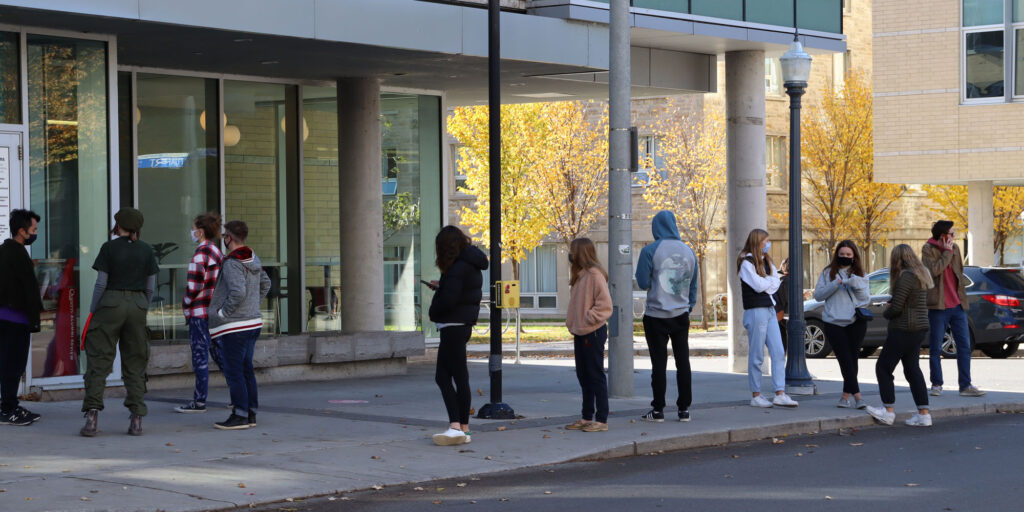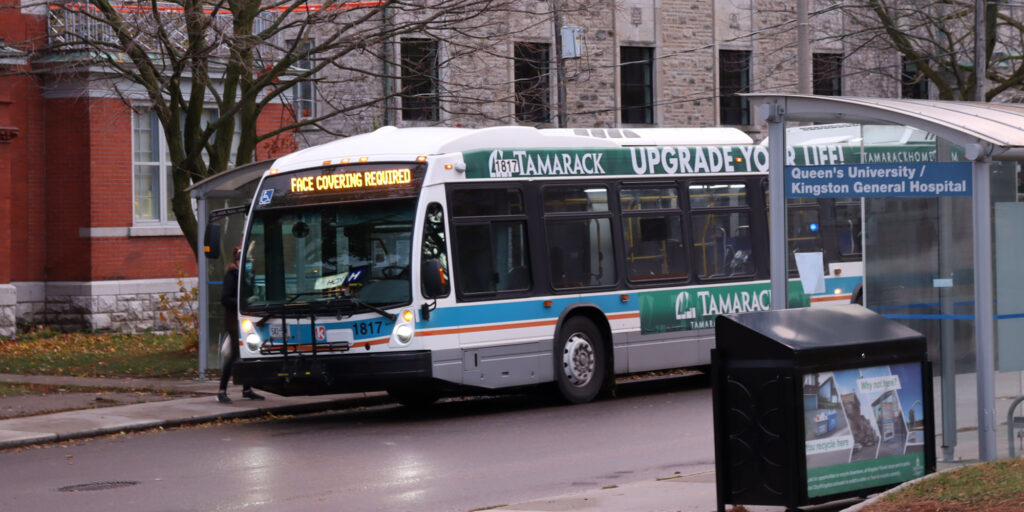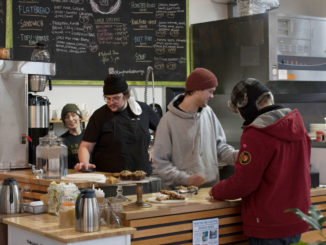A new sustainability app will help Queen’s students track their carbon footprints, filling a significant gap in previous carbon tracking efforts.
Anna Stafford
Kicker
KINGSTON, Ont. — A team of Queen’s students and recent grads are working on a new sustainability app that has the potential to help institutions more accurately monitor their carbon emissions.
The app, called Netzero, will launch later this fall.
Recent Queen’s grads Jenny Bunning and Nora Lobb founded the organization responsible for creating Netzero in 2019. The organization is made up of nine people so far. Bunning and Lobb created the organization through a Queen’s entrepreneurial program that offered funding for the project, while they completed their master of public administration degrees.
“It was an idea that really had a lot of legs,” said Warren Mabee, the chief advisor to the Netzero team and a Queen’s professor.

Mabee serves as a Canada research chair for renewable energy development and implementation. He’s also the director of the Queen’s institute for energy and environmental policy and the associate dean and director of the school of policy.
Through a life-cycle analysis process, the Netzero app will track the carbon footprint of food products that a student purchases, allowing that person to get a sense of their own carbon footprint as a result of their food purchases.
The Netzero creators are piloting the app at Queen’s by partnering with the university’s hospitality services, specifically food services.
The app will be able to track the carbon emissions associated with some designated menu options on campus. Eventually, the Netzero organization will expand the app to include more and more food products.
The group also hopes to expand into tracking students’ carbon emissions in other facets of daily life such as transportation
Reducing footprints
Netzero’s ability to track individual behaviours fills a gap in previous Queen’s sustainability efforts.
The university released the Queen’s Climate Action Plan in 2016, committing to become carbon neutral by 2040.
The plan is divided into three scopes. The first two scopes concern the carbon emissions associated with Queen’s infrastructure and buildings, such as heat generation and electricity consumption. Scope 3, on the other hand, concerns student and staff carbon footprints.
Up to this point, the university has not had a way to track individual carbon footprints. As a result, scope 3 has not yet been quantified, whereas scopes 1 and 2 have been.
“It’s easy to track what your buildings have emitted in heat or electricity over the course of a year. . .,” Bunning said. “It’s very easy to track, and it’s very tangible, but it’s harder to track just the general consumption of your students and staff.”
However, Netzero offers Queen’s a way to begin quantifying this general consumption.
“This is a way to organize what collective action is doing and quantify what collective action is doing,” Mabee said.

Netzero’s ability to track individual behaviours and then share that data with an institution demonstrates its potential to bridge the gap between individual and structural change. It will take data from individual lifestyle choices, and share the data with Queen’s to help inform change on a structural and systemic level, hopefully leading to carbon neutrality by 2040.
As the app expands to track more carbon emissions, it will also allow us to see whether collective action is making a difference or not.
There have been plenty of campaigns calling on individuals to reduce their carbon footprint in recent history, but Mabee points out that there has been no real way to track whether it’s working.
“We didn’t know really what an individual was doing. There was no reporting mechanism; there was no tracking mechanism.”
The ability to track individual behaviour allows an institution to accurately assess which sustainability efforts work and which don’t. The app can inform an institution’s sustainability efforts and operationalize data that has historically been inaccessible.
Rewards
Mabee was also particularly interested in the potential for a rewards system within the app.
When someone saves on carbon by choosing a sustainable food option, they could get a free coffee or snack from a food provider on campus.
Mabee says this fills another gap in previous sustainability efforts. In past sustainability campaigns, there was no concrete or tangible incentive for people to actually participate, especially because someone’s individual choices on their own don’t impact the climate on a major scale.
“There was no real reward for making those decisions other than feeling good and doing the right thing,” Mabee said.
The Netzero team says individual choices add up and really do make a difference for our climate. Once you can quantify those choices, then you can more accurately address the climate crisis and the part we all play.
“I do think that institutions do have a huge role to play because they’re the big players, but I think sometimes we forget that as a collective we can do a lot,” Bunning said.
Netzero could even lead to structural change beyond Queen’s.
Mabee says once Netzero expands to track more than food purchases, the app’s creators can partner with other businesses and utilize Netzero’s carbon tracking mechanism alongside another business’ pre-existing reward system.
He envisions Netzero eventually partnering with credit card companies, for example, who can give customers points for reducing their carbon footprints.
“If we can make it work for Queen’s, there’s absolutely no reason that it couldn’t be rolled out for any number of different groups.”




Be the first to comment